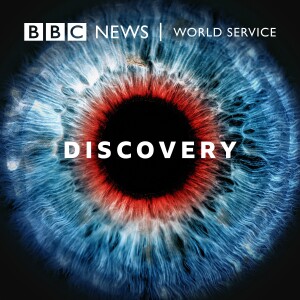
Claudia Hammond explores our experience of touch hunger, and asks if we have enough touch in our lives. Covid-19 and social distancing have changed how most people feel about touch but even before the pandemic there was a concern about the decrease of touch in society. Claudia and Professor Michael Bannissy of Goldsmiths, University of London, discuss the results of the BBC Touch Test, an online questionnaire that was completed by around 40 000 people from 112 countries. Professor Tiffany Field, Director of the Touch Research Institute at the University of Miami School of Medicine, and Merle Fairhurst, Professor of Biological Psychology at Bundeswehr University Munich, reveal their findings about the impact of touch hunger and how to overcome it.
John grew up during the Second World War and endured a lack of touch in his childhood. He relates how in adult life he overcame this absence of touch and why touch remains so important to him. And left isolating in London during lock down, flatmates B and Z came up with a plan to stay healthy with a 6 o’clock hug. Hugging releases a mix of anti-stress chemicals that can lower the blood pressure, decrease anxiety and help sleep.
view more
More Episodes
Bad Blood: You will not replace us
 2023-01-23
2023-01-23
 2023-01-23
2023-01-23
Bad Blood: You've got good genes
 2023-01-16
2023-01-16
 2023-01-16
2023-01-16
Tooth and Claw: Cougar
 2023-01-09
2023-01-09
 2023-01-09
2023-01-09
Tooth and Claw: Wasps
 2023-01-02
2023-01-02
 2023-01-02
2023-01-02
Tooth and Claw: African Wild Dog
 2022-12-26
2022-12-26
 2022-12-26
2022-12-26
Preparing for the next pandemic
 2022-12-24
2022-12-24
 2022-12-24
2022-12-24
Tooth and Claw: Komodo dragon
 2022-12-19
2022-12-19
 2022-12-19
2022-12-19
Wild Inside: The Alpaca
 2022-12-12
2022-12-12
 2022-12-12
2022-12-12
Wild inside: The Harbour Porpoise
 2022-12-05
2022-12-05
 2022-12-05
2022-12-05
Wild inside: Great Grey Owl
 2022-11-28
2022-11-28
 2022-11-28
2022-11-28
Wild inside: The Cheetah
 2022-11-21
2022-11-21
 2022-11-21
2022-11-21
The puzzle of the plasma doughnut
 2022-11-14
2022-11-14
 2022-11-14
2022-11-14
The Riddle of Red-Eyes and Runny-Noses
 2022-11-07
2022-11-07
 2022-11-07
2022-11-07
The problem of infinite Pi(e)
 2022-10-31
2022-10-31
 2022-10-31
2022-10-31
The suspicious smell
 2022-10-24
2022-10-24
 2022-10-24
2022-10-24
The Wild and Windy Tale
 2022-10-17
2022-10-17
 2022-10-17
2022-10-17
The Case of The Missing Gorilla
 2022-10-10
2022-10-10
 2022-10-10
2022-10-10
Chi Onwurah
 2022-10-03
2022-10-03
 2022-10-03
2022-10-03
The Evidence: How pandemics end
 2022-10-01
2022-10-01
 2022-10-01
2022-10-01
David Eagleman
 2022-09-26
2022-09-26
 2022-09-26
2022-09-26
012345678910111213141516171819
Create your
podcast in
minutes
- Full-featured podcast site
- Unlimited storage and bandwidth
- Comprehensive podcast stats
- Distribute to Apple Podcasts, Spotify, and more
- Make money with your podcast
It is Free
- Privacy Policy
- Cookie Policy
- Terms of Use
- Consent Preferences
- Copyright © 2015-2024 Podbean.com



